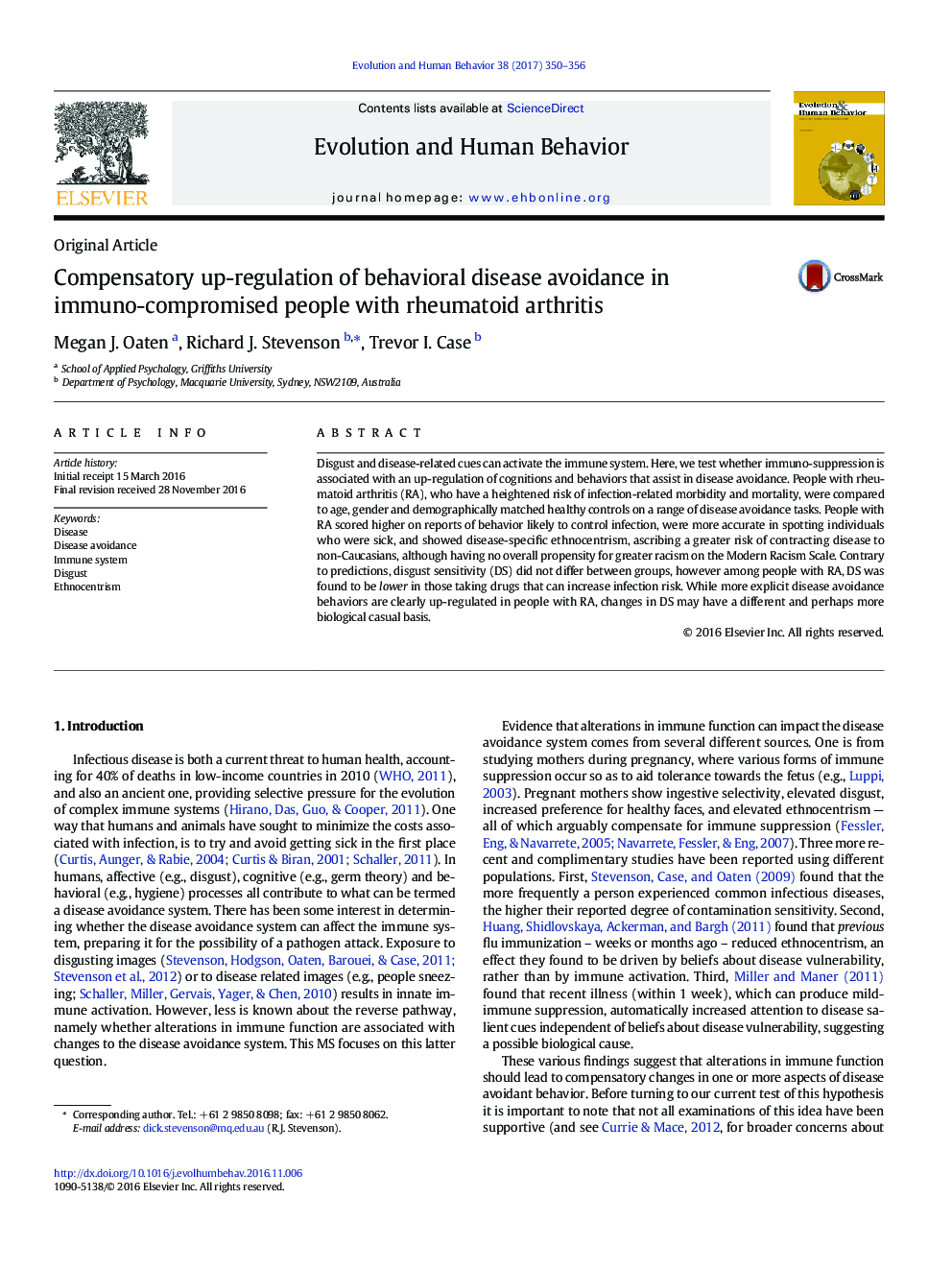| Article ID | Journal | Published Year | Pages | File Type |
|---|---|---|---|---|
| 5044777 | Evolution and Human Behavior | 2017 | 7 Pages |
Disgust and disease-related cues can activate the immune system. Here, we test whether immuno-suppression is associated with an up-regulation of cognitions and behaviors that assist in disease avoidance. People with rheumatoid arthritis (RA), who have a heightened risk of infection-related morbidity and mortality, were compared to age, gender and demographically matched healthy controls on a range of disease avoidance tasks. People with RA scored higher on reports of behavior likely to control infection, were more accurate in spotting individuals who were sick, and showed disease-specific ethnocentrism, ascribing a greater risk of contracting disease to non-Caucasians, although having no overall propensity for greater racism on the Modern Racism Scale. Contrary to predictions, disgust sensitivity (DS) did not differ between groups, however among people with RA, DS was found to be lower in those taking drugs that can increase infection risk. While more explicit disease avoidance behaviors are clearly up-regulated in people with RA, changes in DS may have a different and perhaps more biological casual basis.
